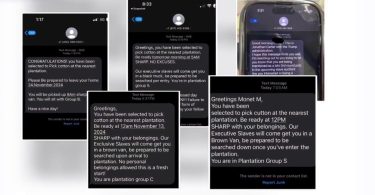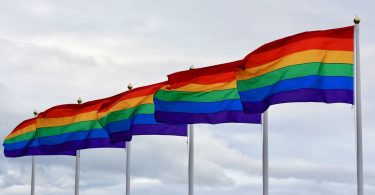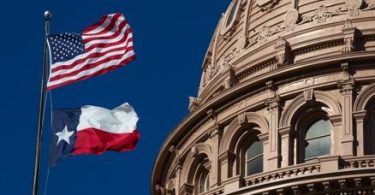India’s LGBTQ community faces a complex journey, from deep-rooted traditions to ongoing legal battles, shaping a diverse narrative of struggle and success.
— Prince Manvendra Singh Gohil, a vocal advocate for LGBTQ rights in India.
MUNICH, BVARIA, GERMANY, May 7, 2024 /EINPresswire.com/ — Building Resilience: Inclusion and Mental Health in the Corporate and Community Spheres
In the corporate world, LGBTQ inclusion is gaining momentum, albeit unevenly. Multinationals and progressive Indian companies are embracing diversity and inclusion as a strategic imperative. Initiatives such as non-discrimination policies, recognition of same-sex partnerships and LGBTQ employee resource groups represent progress towards fostering inclusive workplaces.
However, smaller companies and traditional industries often lag behind, lacking comprehensive policies and support mechanisms for LGBTQ employees. Workplace discrimination, harassment and a lack of transgender-inclusive health policies persist, highlighting the need for greater awareness and enforcement of inclusion policies.
In the face of societal challenges, LGBTQ people in India draw strength and solidarity from a network of community support organisations and advocacy groups dedicated to their well-being. These organisations play a pivotal role in providing safe spaces, resources and mental health support to LGBTQ people across the country.
One such organisation is Humsafar Trust, a Mumbai-based NGO that has been at the forefront of LGBTQ rights activism in India since its inception in 1994. Humsafar Trust runs community centres that provide counselling, HIV/AIDS testing and legal services to LGBTQ people, enabling them to navigate the complexities of their identities in a supportive environment.
Another notable organisation is the Naz Foundation, which has been instrumental in challenging discriminatory laws and advocating for LGBTQ rights through strategic litigation and public awareness campaigns. Established in 1994, the Naz Foundation runs a number of programmes focused on HIV/AIDS prevention, sexual health education and advocacy for LGBTQ rights in India. In addition to these organisations, the Delhi-based Queer Collective provides a platform for LGBTQ people to connect, share experiences and access resources through support groups, workshops and community events.
Despite the invaluable contributions of these organisations, the demand for culturally sensitive mental health services tailored to the unique needs of LGBTQ people often exceeds available resources. Many LGBTQ people continue to face stigma and discrimination in accessing mental health care, increasing their vulnerability to mental health crises.
To address this gap, organisations such as the Bapu Trust for Research on Mind and Discourse in Pune provide specialised mental health services for LGBTQ people, including counselling, support groups and training for mental health professionals in LGBTQ-affirming care practices. Through its innovative programmes and research initiatives, the Bapu Trust seeks to promote mental health equity and social justice for LGBTQ communities in India.
As India grapples with the complexities of LGBTQ mental health, these organisations remain steadfast in their commitment to providing support, advocacy and resources to LGBTQ people, paving the way for a more inclusive and compassionate society.
Digital platforms: Empowering LGBTQ voices.
In a country where public spaces can be hostile to LGBTQ expression, digital platforms like u2nite serve as vital lifelines. These platforms provide safe spaces for LGBTQ people to connect, share experiences and access support services without fear of discrimination or persecution. Encrypted messaging and safe privacy features enhance security, particularly in regions where LGBTQ people face threats to their safety.
However, with the proliferation of digital platforms that cater to LGBTQ communities, concerns about privacy and security loom large. Popular dating apps have come under scrutiny for data breaches, unauthorised data collection, and commercial exploitation of user information by third parties.
Cases of data breaches and privacy violations have been widely reported in the media, highlighting the vulnerability of users of these platforms. For example a popular dating app for gay, bisexual and transgender people, came under fire in 2020 after it was discovered that the app had shared users’ HIV status and other sensitive information with third-party vendors without their consent. This breach of trust sparked outrage and raised serious concerns about the privacy and safety of LGBTQ people on dating apps.
Similarly, OkCupid, another popular dating platform, has faced criticism for its data practices, including sharing user data with third-party advertisers for targeted marketing purposes. These revelations underscore the risks associated with sharing personal information on dating apps, particularly for LGBTQ people who may already be vulnerable to discrimination and harassment.
In contrast, u2nite distinguishes itself by prioritising user privacy and security. Committed to protecting user data and maintaining confidentiality, u2nite employs stringent security measures, including data minimisation practices. By prioritising user anonymity and discretion, u2nite provides LGBTQ individuals with a trusted platform for meaningful connections without compromising their privacy or security. By championing user privacy rights and fostering a culture of transparency, u2nite empowers LGBTQ people to express themselves authentically and make real connections in a safe online environment.
Advocacy, cultural transformation and the road to inclusive equality in India.
The journey towards LGBTQ equality in India requires a comprehensive strategy that includes advocacy, education and cultural transformation. Media portrayals and popular culture have a significant impact on shaping public perceptions and breaking down stereotypes.
Local initiatives and grassroots advocacy are essential to bring about change at the community level. Organisations such as the LGBTQ India Foundation and the Indian Queer Youth Network work tirelessly to amplify LGBTQ voices, challenge discriminatory norms, and advocate for the fundamental rights and dignity of all individuals, regardless of sexual orientation or gender identity.
However, despite the progress made in LGBTQ rights, significant challenges remain. The intersection of legal, cultural and societal barriers continues to shape the lived experiences of LGBTQ people in India. Discrimination, stigma, and lack of legal recognition remain formidable obstacles to full equality and inclusion.
In this landscape, platforms like u2nite are emerging as catalysts for change, providing safe spaces for LGBTQ people to connect. By prioritising user privacy and security, u2nite provides a sanctuary where LGBTQ people can express themselves authentically, share experiences and support without fear of discrimination or persecution.
As India moves towards a more inclusive future, collective action and unwavering commitment are paramount. It is imperative to amplify LGBTQ voices, challenge entrenched norms and advocate for policy reforms that uphold the rights and dignity of all individuals.
Mr. Magne Moritsöydeed communicationemail us hereVisit us on social media:FacebookTwitterLinkedInInstagramYouTubeTikTok
DOCUMENTARY ON LGBTQ+ INDIA AND PRIDE 2020






